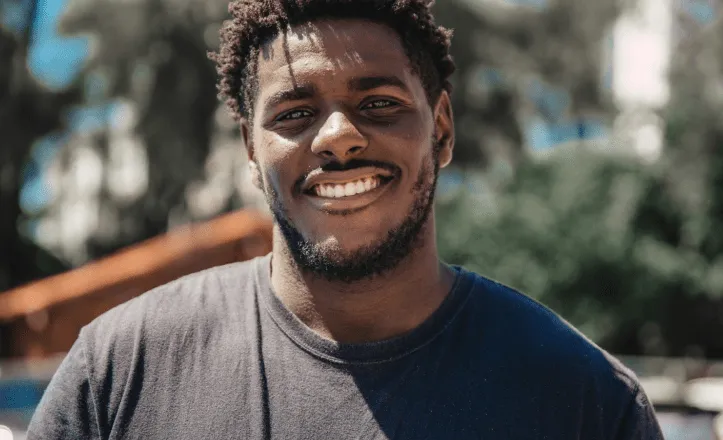About Dialectical Behavior Therapy in Mental Health Programs
DBT is a relatively new type of therapy, having been developed in the 1980s by an American psychologist named Marsha Linehan.
It was originally developed as a treatment of borderline personality disorder, but it is often used with other types of mental disorders as well.
And while DBT is not always easy to find, it is becoming more common to find it offered as both outpatient therapy and as a component of many residential inpatient mental health programs.
It can also be used in programs that offer treatment for co-occurring disorders, such as in the case of someone having a substance use disorder at the same time as another mental health condition.
DBT is not a definitive cure for borderline personality disorder or other mental disorders, but has shown to be a very effective treatment.
In fact, studies on people with borderline personality disorder (BPD) who are treated with DBT show that up to 86% of patients are able to see a remission in their BPD symptoms after successful completion of a program.
Key Facts on Dialectical Behavioral Therapy
- Types of mental health disorders treated with DBT: borderline personality disorder, depression, anxiety, self-injury behaviors, eating disorders, substance use disorders, suicidal thoughts or suicidal attempts
- Benefits of DBT therapy: people are able to build and maintain successful relationships, learn triggers and how to react appropriately, learn emotional regulation skills to lessen the intensity of emotions, people learn how to keep themselves safe during a crisis involving self-harm or suicidal thoughts, build skills that improve overall functioning in daily life, learn how to avoid impulsivity and other negative coping skills, can help remind people why life is worth living
- Components of DBT therapy: pre-assessment, individual therapy, group skills training, telephone crisis coaching
- Main skills taught in DBT therapy: mindfulness, emotional regulation, distress tolerance, interpersonal effectiveness
- How to pay for DBT therapy: self-pay, cash, private insurance, state-funded insurance like Medicare or Medicaid, financial assistance
Dialectical Behavioral Therapy at Mark Behavioral Health
When certain mental health disorders are left untreated, the results can be dangerous and even life-threatening. This is often the case with disorders that are treated by DBT, such as borderline personality disorder.
Because of this, Mark Behavioral Health ensures that all patients who require DBT have access to it, along with other types of therapy or treatment that they need.
By offering this type of therapy to our clients, we ensure that they are not only kept safe in the short-term, but that they also learn valuable skills to take with them after treatment is over.
Furthermore, our DBT therapists are specially trained to provide the highest quality treatment in Florida.
DBT is part of residential and outpatient programs at Mark Behavioral Health.
Types of Dialectical Behavior Therapy
Most dialectical behavior therapy programs involve a combination of individual and group therapy sessions, as well as other specialized sessions when needed.
In order to take part in DBT, however, an individual is typically required to be comfortable participating in both individual and group sessions.
Pre-Assessment
Because dialectical behavior therapy is such a specialized type of therapy, a mental health professional will usually want to verify that it is the right therapy for you through an official assessment.
During this assessment you should gain a good understanding of how DBT works and also determine a plan for your length of treatment and frequency of sessions.
Individual Therapy
During individual sessions, your therapist will work with you to find patterns in your emotions and behaviors, looking closely at those which are harmful or interfere with your everyday life.
These sessions will be similar to how a psychotherapy or talk therapy session would go during more traditional therapy.
If your BPD or other disorder is related to trauma or invalidation in your past, your therapist may want to spend some time trying to understand these aspects of your disorder.
If you are experiencing any thoughts of suicide or suicidal behaviors, your therapist will also want to lay out a specific plan with you about how to keep yourself safe in these situations.
Group Skills Training
Group skills training sessions for DBT should not necessarily be thought of as group therapy, although there may be opportunities for people to share their stories and experiences.
These group sessions are more like classroom sessions, where a therapist works with multiple people at a time to give them information and teach new skills.
Skills taught during DBT skills training sessions include:
- Mindfulness skills — this essential practice emphasizes being present in the current moment, as opposed to either dwelling on the past or worrying about the future.
- Emotion regulation skills — a skill that involves not suppressing one’s emotions, but instead learning to control and manage them in a way that is healthy and appropriate.
- Interpersonal effectiveness skills — a skill that involves learning how to interact with other people in a successful and effective way, such as being able to solve interpersonal conflicts, establish healthy boundaries, and have needs met effectively.
- Distress tolerance skills — an important skill that allows people to handle and manage their most intense emotions, such as the kind of emotions that would lead to self-harm or suicide attempts.
Telephone Crisis Coaching
Because self-harm and suicidal thoughts and behaviors are common in people who are using DBT, there may also be times in between sessions where they need crisis counseling.
This is typically the case when a person in treatment is experiencing thoughts of self-harm or suicide and is in need of immediate help, and is not intended to replace regular therapy sessions or treatment by any means.
It is also essential with this type of treatment that appropriate boundaries are set between the therapist and individual, such as not calling past a certain time.
What Types of Mental Health Disorders Can Be Treated in DBT?
Dialectical behavior therapy is being offered more and more as part of mental health programs as it is found to be effective for a variety of disorders.
Many of these disorders involve problems with emotion dysregulation and dangerous or impulsive behaviors.
Types of mental illness and behaviors that can be treated in dialectical behavior therapy include:
- Borderline personality disorder
- Anxiety disorders
- Depressive disorders
- Eating disorders, particularly bulimia and binge eating disorder
- Substance use disorders
- Post-traumatic stress disorder (PTSD)
- Suicidal ideation
- Self-harm
What to Expect During Dialectical Behavior Therapy Sessions
What you can expect during dialectical behavior therapy sessions will depend on the specific type of session you are attending.
Individual therapy will exist much like a natural conversation between you and your therapist, during which you will relay experiences and they will ask you several questions.
Your individual therapist may also ask you to keep a journal or fill out diary cards outside of your sessions to track your emotions and behaviors, so they have a better idea of areas where you need help.
During group therapy sessions, you will do less speaking and more listening, as there is less of an emphasis on sharing experiences in DBT than during typical group support therapy.
These sessions may feel like a classroom, where the therapist instructor goes over the skills modules for DBT one by one. The size of the group may vary, but will likely be between 4 and 10 people.
Phone coaching sessions, on the other hand, will have less structure and will likely follow guidelines that you and your therapist lay out together in advance.
How Dialectical Behavior Therapy Impacts Mental Health Recovery
Dialectical behavior therapy, when used alongside other treatments and therapies, can be incredibly effective when treating certain mental health disorders and preparing people for more successful lives.
Part of what makes this type of therapy so effective in mental health programs is that it treats the symptoms and behaviors of certain disorders, rather than just treating the disorders.
More benefits of dialectical behavior therapy include:
- Learning how to control and manage the intensity of negative emotions
- Learning valuable life skills and problem-solving skills to be more successful in work or school
- Learning how to build and maintain stronger and healthier relationships
- Learning how to set boundaries for yourself and respect the boundaries of others
- Learning how to keep yourself safe during times of crisis or other difficult situations
- Learning coping skills to behave in healthy ways instead of relying on substance abuse or other self-destructive behaviors
Cost of Dialectical Behavior Therapy
The cost of dialectical behavioral therapy is often included as part of the cost of a larger program, such as in the case of the residential program at Mark Behavioral Health.
It is important to note that mental health care facilities are often willing to work with individuals and families in order to ensure that they can access affordable care.
Factors that can affect the cost of dialectical behavior therapy include:
- If you are attending through outpatient therapy or an inpatient program
- If you have health insurance and what type of insurance you have
- Your location
- The length of your treatment
- The frequency of your treatment sessions
- Whether the facility offers payment plans, sliding fee scales, or other forms of financial assistance
How to Enter Dialectical Behavior Therapy in Florida
DBT is a therapy that is not always available or easy to find, especially as it is still considered a somewhat specialized type of therapy.
Dialectical behavior therapy resources in Florida include:
We also invite you to visit Mark Behavioral Health, our residential facility in Florida that offers DBT and CBT, as well as fully bilingual services.
Find Healing with Dialectical Behavior Therapy at Mark Behavioral Health
Please do not hesitate to contact us at Mark Behavioral Health if you believe that you or a loved one may be a good candidate for DBT therapy.
We offer this type of therapy and more, including other types of behavioral therapy, to provide a comprehensive and integrative approach to mental health care in Florida.
No matter what you are going through, we would be honored to help you get your life back on track so you can live with a sense of peace and overall better quality of life — contact us today.


